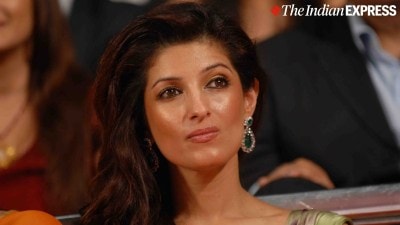Laloo gets an art attack
Political culture finds literal meaning in Mandalised Bihar. From Prakash Jha8217;s Gangaajal to music albums by decidedly lesser known Bho...

Political culture finds literal meaning in Mandalised Bihar. From Prakash Jha8217;s Gangaajal to music albums by decidedly lesser known Bhojpuri singers, the Yadav power factory is inspiring the entertainment industry. Gangaajal is rather dispassionate about the Yadavs; but the Bhojpuri albums reflect a certain impatience with the social regime since Laloo Prasad Yadav became chief minister in 1990.
In Gangaajal, Ajay Devgan is an IPS officer who takes on villain Sadhu Yadav and his son Sunder Yadav, promoters of the 8216;8216;Yadav Group of Companies8217;8217;. They control police stations, bully ministers, palm out government contracts, authorise kidnappings, rape and kill with impunity. No law applies to them; finally Devgan resorts to extra-constitutional means. How does Jha8217;s script match up to real life?
A Gujarati businessman is arrested and brought to Patna to stand trial in a cheating case. Instead of producing him in court, the policemen take him to a minister8217;s house. There, the businessman is tortured for days. When his police escort, initially compliant, start protesting, they too are tortured. Meanwhile, opposition parties allege the money involved has actually been embezzled from the state coffers.
A film script? Actually it8217;s the summary of a charge sheet against Surendra Yadav 8212; a former state minister 8212; Azad Gandhi, a serving legislator, and Pappu Yadav, brother-in-law of Chief Minister Rabri Devi8217;s brother Subhash Yadav.
The case is being heard by a court in Gaya. Gandhi is still in jail, Surendra has just been released on bail.
Meanwhile, the real Sadhu Yadav 8212; one of Rabri8217;s infamous brothers 8212; has had his supporters disrupting screening of Gangaajal, accusing the film of defamation. The Yadav hegemony is complete.
Jha calls his film an attempt to understand Mandalised Bihar, 8216;8216;If you call Brahminism an attitude, that attitude has now been appropriated by the Yadavs.8217;8217;
Caste is ever a hot issue in Bihar. In Gangaajal, most policemen who back Devgan have upper caste surnames. Jha dismisses suggestions of bias, 8216;8216;There is one Yadav inspector who gives up his life fighting the criminals.8217;8217; Additionally, a corrupt Dalit inspector confesses bribing his caste leader to get a police job.
Anand Mohan is not as big a name as Prakash Jha but, still, he8217;s popular, a singer whose cassettes sell in the tens of thousands. Mohan8217;s songs are satirical8212;a section of MLAs have even demanded a statewide ban on them 8212; dealing with the kidnapping industry, political corruption. One song, written by lyricist Vinay Bihari, talks of how 8216;8216;the boy who was grazing the buffalo8217;8217; now rules. The reference to the Yadav caste, traditional cowherds, is obvious.
Mohan8217;s three most popular albums are Bihar nahi Sudhari, BA kar ke Bekari Charavata and Babua MA Kailaba. They paint a tragi-comic picture of Bihar.
One talks about an unemployed graduate reduced to grazing buffaloes. Another describes a former cowherd taking to crime and then politics.
One song goes: Ab tho Bihar mein jial haram ho gayi/ Loot phat chori dacaity/ Sab khule aam ho gayi Life is nasty in Bihar. Loot and extortion are commonplace.
No caste is identified in these songs. In fact no politician is named, other than a throwaway reference to Laloo for having helped create Jharkhand out of the former south Bihar. But the implication is impossible to miss.
Bhojpuri troupes traditionally comprised Dalit singers and were patronised by upper caste groups. They performed at functions like weddings. In the 1990s, as elections became a carnival, these troupes began to be hired by political parties.
Sensing a new 8216;8216;market8217;8217;, the Bhojpuri music industry has begun to focus on albums with a political message. Mohan says his songs are janwadi speak for the masses, 8216;8216;I am expressing through songs what you write in newspapers.8217;8217;
Some songs use the imagery of Kaliyuga to explain Bihar. Life is dangerous, the streets are mean. 8216;8216;I am not sure who is the boy with that girl/ What I am sure is she will be robbed of her honour/ If she walks like this8217;8217;, goes one of Mohan8217;s songs. Another is more definitive: 8216;8216;It is Kaliyuga in Bihar/ It is impossible to live here8217;8217;.
In Bihar, they certainly don8217;t believe in subtlety.
- 01
- 02
- 03
- 04
- 05































